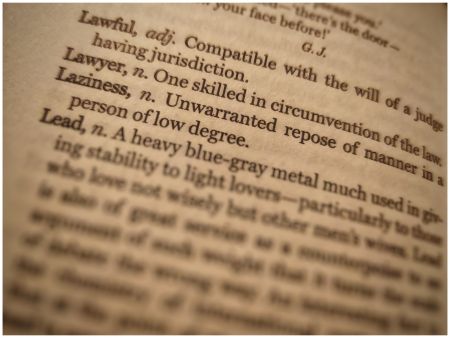Paradigm: Difference between revisions
Amwelladmin (talk | contribs) No edit summary |
Amwelladmin (talk | contribs) No edit summary |
||
| Line 1: | Line 1: | ||
{{def|Paradigm|/ˈpærədaɪm/|n|}}1. (''[[Epistemology|Epistemology]]; nowadays rare'') The idea, first finding voice in {{author|Thomas Kuhn}}’s spectacular {{br|The Structure of Scientific Revolutions}} that any acadamic discipline comprises not just a body of canonical knowledge, but a language, world-view, hierarchy, intellectual tradition and social organisation which, until you have fully assimilated it, | {{def|Paradigm|/ˈpærədaɪm/|n|}}1. (''[[Epistemology|Epistemology]]; nowadays rare'') The idea, first finding voice in {{author|Thomas Kuhn}}’s spectacular {{br|The Structure of Scientific Revolutions}} that any acadamic discipline comprises not just a body of canonical knowledge, but a language, world-view, hierarchy, intellectual tradition and social organisation which, prevents you from credibly sounding off about it until you have fully assimilated it and, basically, been indoctrinated by it. Not that it has ever stopped the JC trying. | ||
2. (''Management consultancy''): A fashionable idea someone else had recently that you are now cottoning on to that promises to, but won’t, profoundly change the commercial world. | 2. (''Management consultancy, distressingly common''): A [[fashionable idea]] someone else had recently that you are now cottoning on to that promises to, but won’t, profoundly change the commercial world. | ||
===Kuhn=== | |||
In its sensible state, a paradigm describes how a science operates, and how scientific theories are challenged, and fall. | In its sensible state, a paradigm describes how a science operates, and how scientific theories are challenged, and fall. | ||
As Kuhn noticed, | As [[Kuhn]] noticed, contrary to what {{author|Karl Popper}} proposed in his theory of [[falsification]]ism, one does ''not'' abandon a scientific theory just because you find some contradictory evidence of it. Instead, you tap the dial, you re-run the experiment, you devise “numerous articulations and [[ad hoc]] modifications” to eliminate the apparent conflict. Scientists of a given discipline are imaginative in their defence of the status quo. | ||
If the data won’t do what they’re meant to, sometimes you reject the '''question'' as being irrelevant, and not the answer predicted by the theory. | If the data won’t do what they’re meant to, sometimes you reject the '''question'' as being irrelevant, and not the ''answer'' predicted by the theory. | ||
All this takes place inside what Kuhn describes as a “[[paradigm]]” - a “particular coherent tradition of scientific research” governing not only the theory but the education, instrumentation, rules and standards of practice. The scientific community decides which questions even relevant to the development of scientific research by reference to the paradigm, and not the other way around: observation is in this way theory-dependent. | All this takes place inside what Kuhn describes as a “[[paradigm]]” - a “particular coherent tradition of scientific research” governing not only the theory but the education, instrumentation, rules and standards of practice. The scientific community decides which questions even relevant to the development of scientific research by reference to the paradigm, and not the other way around: observation is in this way theory-dependent. | ||
| Line 15: | Line 16: | ||
But the same thing would happen if {{author|Richard Dawkins}} entered the seminary. | But the same thing would happen if {{author|Richard Dawkins}} entered the seminary. | ||
So plenty of scope — need, even — for cognitive dissonance. | So plenty of scope — need, even — for [[cognitive dissonance]]. | ||
{{sa}} | {{sa}} | ||
*{{br|The Structure of Scientific Revolutions}} | *{{br|The Structure of Scientific Revolutions}} | ||
Revision as of 12:29, 20 December 2020
|
|
Paradigm /ˈpærədaɪm/ (n.)
1. (Epistemology; nowadays rare) The idea, first finding voice in Thomas Kuhn’s spectacular The Structure of Scientific Revolutions that any acadamic discipline comprises not just a body of canonical knowledge, but a language, world-view, hierarchy, intellectual tradition and social organisation which, prevents you from credibly sounding off about it until you have fully assimilated it and, basically, been indoctrinated by it. Not that it has ever stopped the JC trying.
2. (Management consultancy, distressingly common): A fashionable idea someone else had recently that you are now cottoning on to that promises to, but won’t, profoundly change the commercial world.
Kuhn
In its sensible state, a paradigm describes how a science operates, and how scientific theories are challenged, and fall.
As Kuhn noticed, contrary to what Karl Popper proposed in his theory of falsificationism, one does not abandon a scientific theory just because you find some contradictory evidence of it. Instead, you tap the dial, you re-run the experiment, you devise “numerous articulations and ad hoc modifications” to eliminate the apparent conflict. Scientists of a given discipline are imaginative in their defence of the status quo.
If the data won’t do what they’re meant to, sometimes you reject the 'question as being irrelevant, and not the answer predicted by the theory.
All this takes place inside what Kuhn describes as a “paradigm” - a “particular coherent tradition of scientific research” governing not only the theory but the education, instrumentation, rules and standards of practice. The scientific community decides which questions even relevant to the development of scientific research by reference to the paradigm, and not the other way around: observation is in this way theory-dependent.
A paradigm has exclusive jurisdiction over its own subject matter. One can only pronounce on a scientific problem once one has been fully inducted into it: biologists will not take seriously the biological assertions of fundamentalist Christians, for example. Fundamentalist Christians who take biology exams will fail, and thereby will never be able to authoritatively comment on biological matters.
But the same thing would happen if Richard Dawkins entered the seminary.
So plenty of scope — need, even — for cognitive dissonance.
